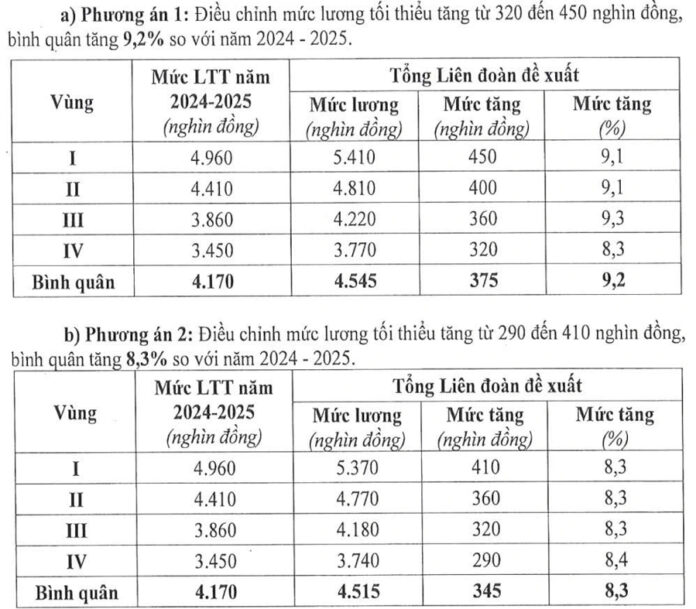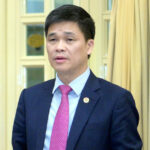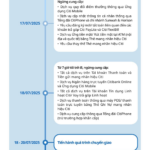The first meeting of the National Wage Council concluded on the morning of June 26, and proposed adjustments to the regional minimum wage have been revealed.
Speaking to the press after the first meeting of the National Wage Council, Mr. Hoang Quang Phong, Vice President of the Vietnam Chamber of Commerce and Industry (VCCI) and Vice President of the National Wage Council, shared that their proposed increase ranges from 3% to 5%.
“This moderate increase aims to provide businesses with adaptability and the capacity to reward diligent workers, especially in effectively implementing Resolution 57 on improving labor productivity and innovation,” said Mr. Hoang Quang Phong.
He added that the specific increase rate needs to be further negotiated within the Council, and there is no official decision yet. Regarding the timing of the regional minimum wage increase, the employer representative proposed an increase from January 1, 2026.
While the employer representative proposed a low increase, the Vietnam General Confederation of Labour (VGCL) suggested a significantly higher increase.
Mr. Nhac Phan Linh, Vice President of the Institute for Strategy and Labour and Trade Union Magazine Research (VGCL), and a member of the Council, shared that VGCL proposed two options for increasing the regional minimum wage, ensuring a minimum standard of living for workers, with an increase of 9.2% and 8.3%. The proposed effective date for the minimum wage increase is January 1, 2026.
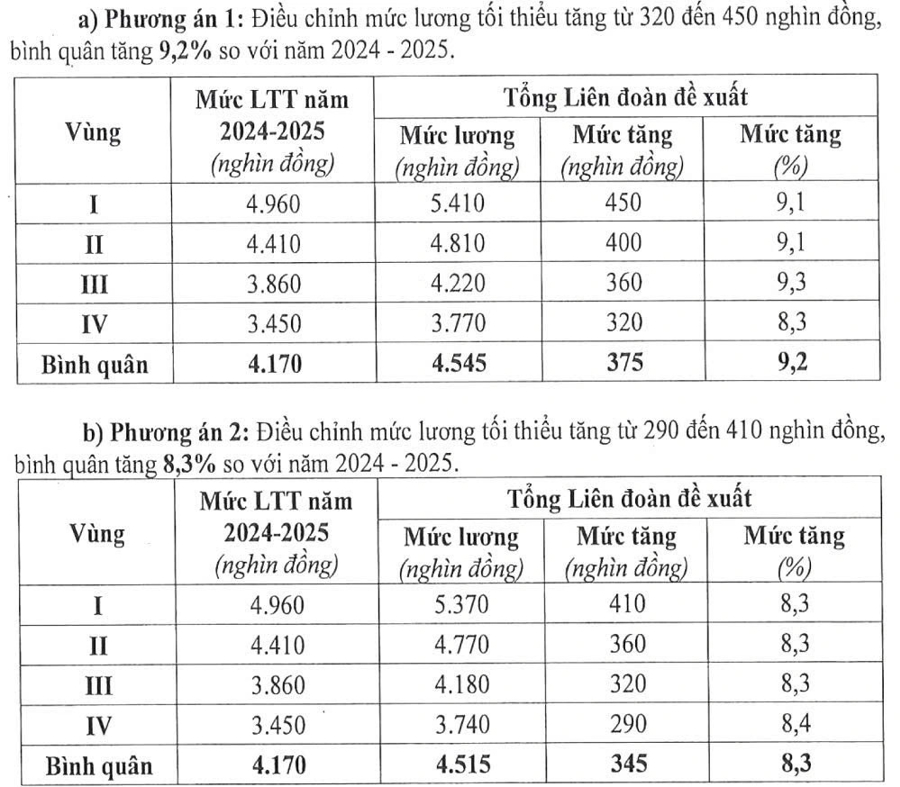
Explaining the two options, Mr. Nhac Phan Linh stated that these proposals consider the overall economic context, development goals, and future projections, especially through regular surveys and investigations into the lives of workers conducted by trade union organizations.
The VGCL representative cited macroeconomic factors and the Party and State’s policies on improving the living and working conditions and social welfare of workers. With Vietnam’s new era vision to become a developed, high-income country by 2045, there are higher income goals to consider.

Based on this vision, Mr. Linh argued that the average income per person should reach $15,000, while the current figure stands at $4,700. This means that workers’ incomes need to increase by over $400 annually. This forms the basis for the Council’s discussions, approaching the matter differently than in the past.
“Of course, determining the minimum wage still largely depends on the basket of goods and the consumer price index (CPI)… But we should also consider the political goals set by the Party and the State to bring about a new breakthrough. A ‘revolution’ in wages and incomes of workers is necessary,” stated Mr. Nhac Phan Linh.
Furthermore, ensuring employment means guaranteeing workers’ incomes as a minimum condition. According to Mr. Linh, the VGCL’s proposed increases of 9.2% and 8.2% are modest compared to the targets set by the Party and the State.
The VGCL representative also provided an example of electricity prices, which have increased four times, totaling a 17% rise, while the minimum wage has only increased by 6%.
Regarding the minimum hourly wage, the trade union organization proposed determining it based on a conversion of the monthly minimum wage, with an adjustment coefficient.
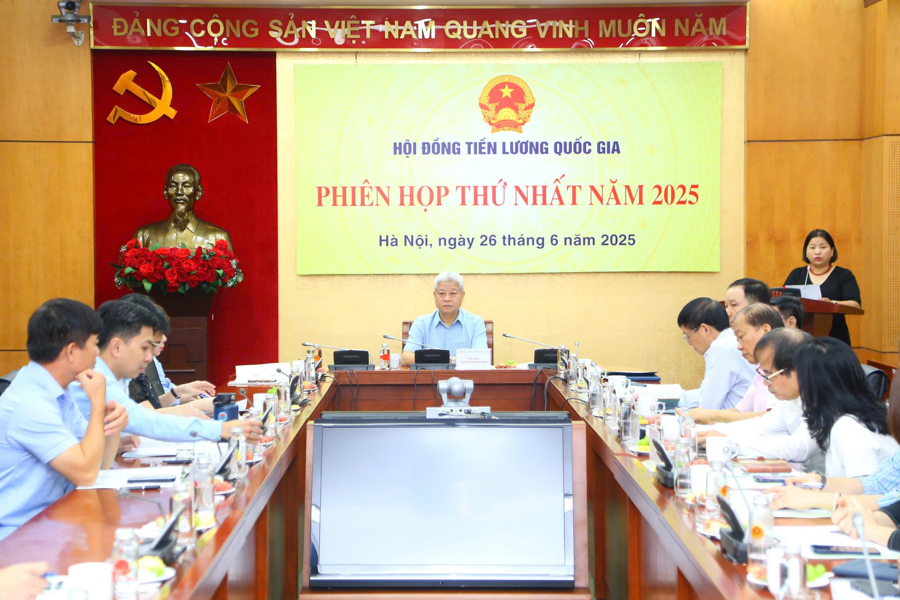
According to information, the Technical Department of the National Wage Council has proposed a minimum wage increase of 6.5% to 7%. Thus, there are currently varying proposed minimum wage increases from different parties within the Council.
Mr. Nguyen Viet Cuong, an independent expert on the National Wage Council, commented that this year’s minimum wage negotiation has many unpredictable factors due to its connection with the Vietnam-US trade negotiations.
Regarding the timing of the increase, Mr. Cuong believed that July 2025 would be too soon, as it might not allow enough time to issue related documents. Therefore, the beginning of next year could be a more feasible option. “The wage increase must ensure the basic principle of compensating for price fluctuations and guaranteeing a minimum standard of living for workers,” the expert emphasized.
Mr. Nguyen Manh Khuong, Vice Minister of Home Affairs and Chairman of the National Wage Council, also shared that the parties have not yet reached a consensus, despite suggestions for a vote. It is expected that the National Wage Council will hold another meeting in early August to consider the regional minimum wage adjustment plan.
The Prime Minister’s China Visit: 4 Key Takeaways
“Vietnam’s Deputy Prime Minister and Minister of Foreign Affairs, Bui Thanh Son, recently sat down for an interview regarding Prime Minister Pham Minh Chinh’s official visit to China. In this exclusive conversation, he shed light on the outcomes and significance of this diplomatic trip, offering valuable insights into the evolving dynamics between these two nations.”
“Nationwide Waiver of Tuition Fees for Public School Students Starting Academic Year 2025-2026”
From the academic year 2025-2026, public school students nationwide will be exempt from tuition fees. Additionally, those attending private and semi-private educational institutions will receive financial support for their tuition.


























